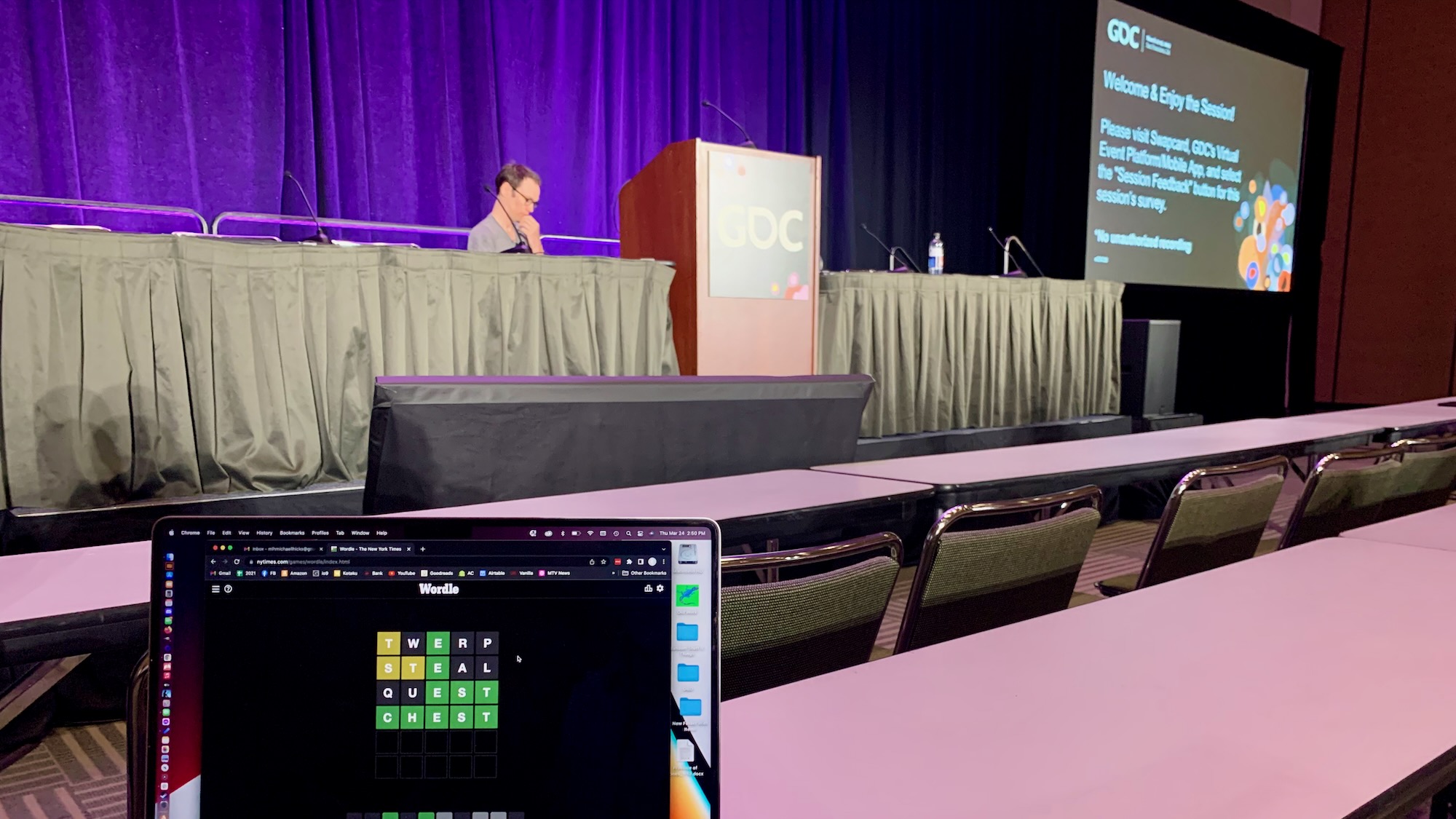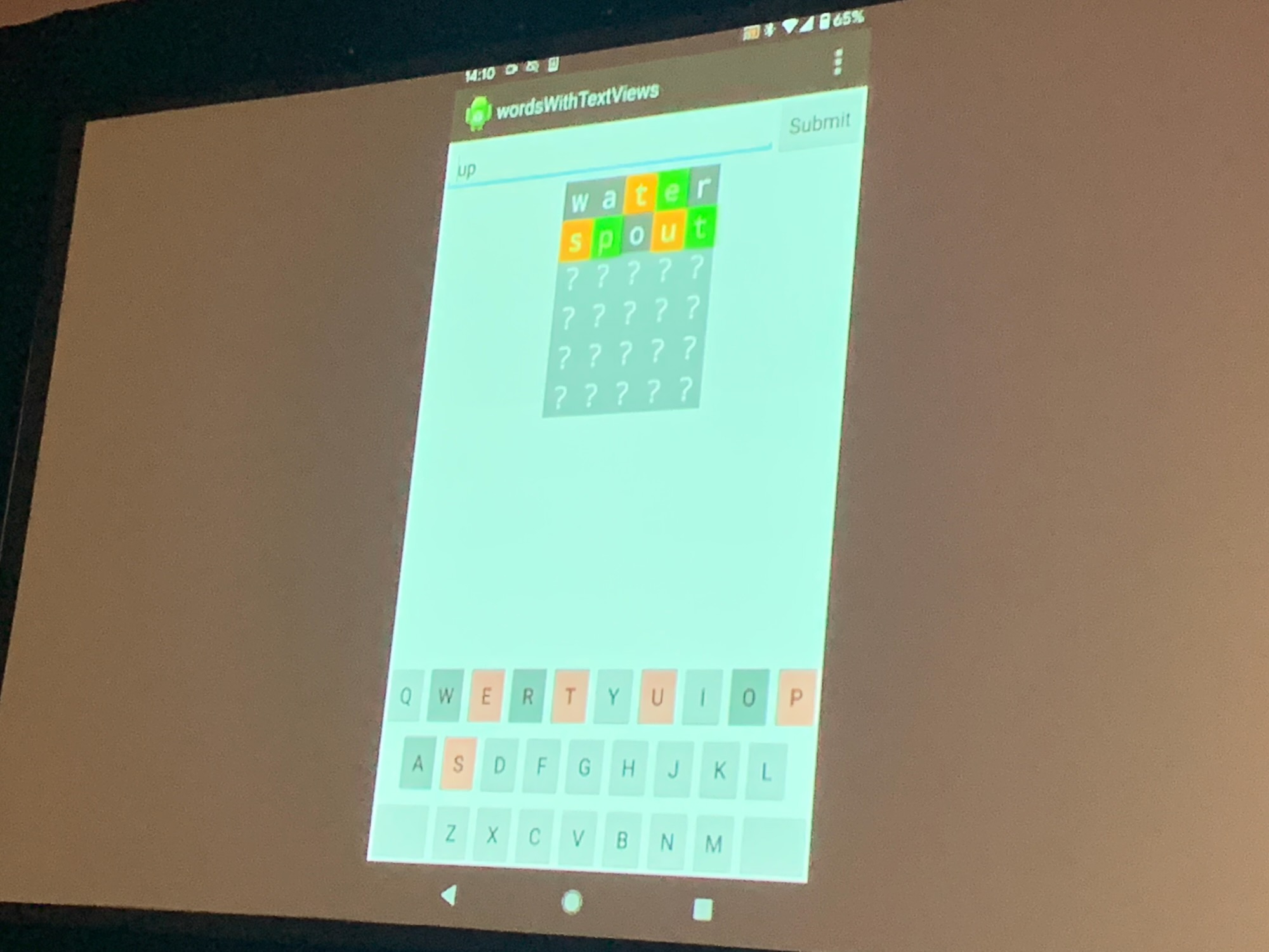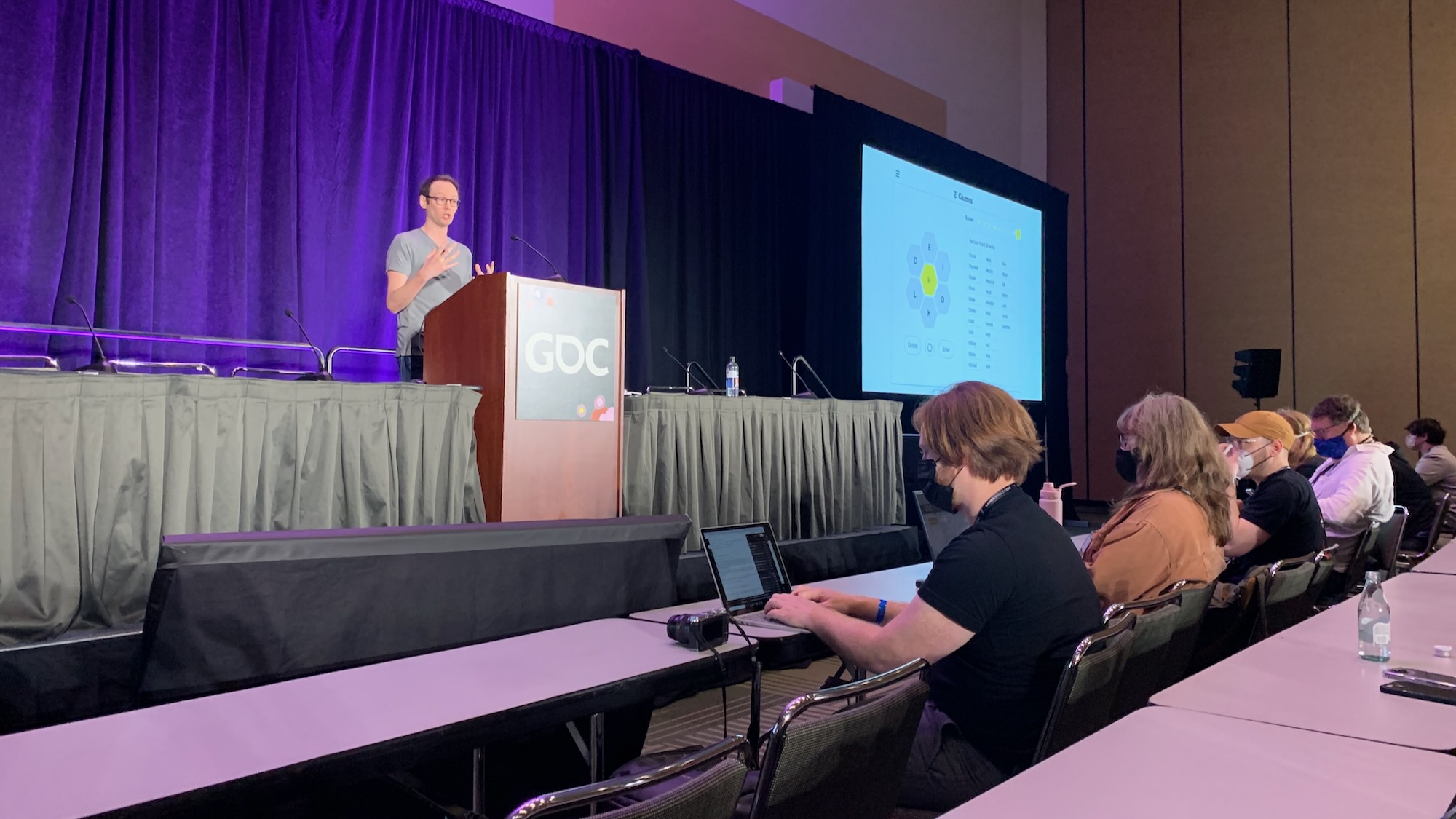Josh Wardle nearly made a Wordle Android app in 2013
At GDC panel 'Wordle: Doing the Opposite of What You're Meant To,' Wardle explained the hit game's bizarre history

Viral sensation Wordle seemingly came out of nowhere to become a daily event in 2021, filling Twitter with green and yellow squares and spawning hosts of copycats — until creator Josh Wardle sold Wordle to the New York Times earlier this year. But it turns out Wardle first began designing the game as an Android app back in 2013.
And by his own admission, it "looked like garbage."
At a Game Developers Conference (GDC) panel "Wordle: Doing the Opposite of What You're Meant To," Wardle explained the origins of his word game. Trying to find a way to entertain his partner, he "tried to teach [him]self Android development" and coded an early Wordle prototype that let you play endlessly, one five-letter word after the other.

He immediately ran into problems, such as the fact that out of the 13,000 five-letter dictionary words, many aren't well-known — mozed, dawts, gawcy, byded, zizel, emyds, and rojis are just a few examples he had to filter out one by one.
But beyond paring down the list to recognizable words, he also claimed he was "terrible" at Android coding, and eventually "lost interest in the game." He only returned to it in 2021 after mastering web coding instead.
He admitted that his decision to make Wordle a website instead of an Android word game went against conventional wisdom. A Wordle app would "have your users captured" and could send them push notifications.
In the end, it's probably for the best that Wardle didn't make it an Android app, beyond the unpolished design of the original app prototype. As he himself said, having people play only once a day created a "social aspect" that gave the game its massive popularity. An app with endless words would have quickly burned out users, and would have been harder to share with others than a URL.
Be an expert in 5 minutes
Get the latest news from Android Central, your trusted companion in the world of Android

After describing Wordle's massive rise to fame, Wardle explained why he decided to sell the brand.
"Running a game business is of no interest to me," Wardle said. Because the game was only 63KB in size, he could easily manage the huge swell in traffic with a $100/month Cloudflare payment; and he had no interest in tracking people and selling data to advertisers.
But when other people copied the game and monetized it, Wardle said it "felt really unpleasant" to see others making money off of something he had tried to keep free for all.
"Selling to the New York Times was a way for me to walk away from that. I didn't want to be paying a lawyer to issue a cease and desist on a game I wasn't making money on."
Wardle said he "can't tell you what's next," except that it'll be a creative project that's interesting to him, not the next Wordle trying to recapture that same interest. "If I set out with the goal of trying to make something popular or viral, it's often an abject failure."
You can be pretty sure whatever the project is, it probably won't become one of the best Android games.

Michael is Android Central's resident expert on wearables and fitness. Before joining Android Central, he freelanced for years at Techradar, Wareable, Windows Central, and Digital Trends. Channeling his love of running, he established himself as an expert on fitness watches, testing and reviewing models from Garmin, Fitbit, Samsung, Apple, COROS, Polar, Amazfit, Suunto, and more.
